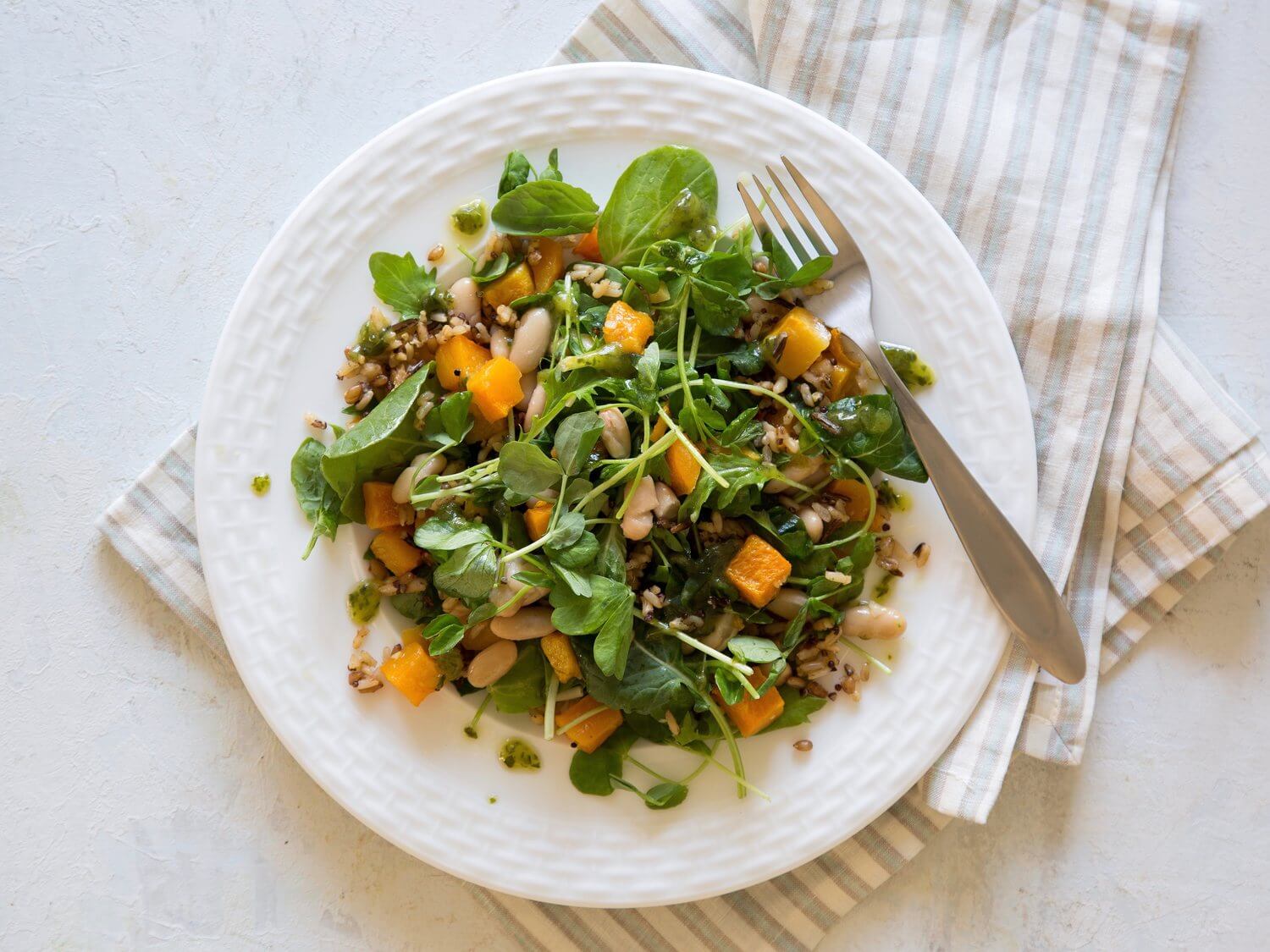 The vegan diet is devoid of all animal products, including meat, eggs, and dairy.
The vegan diet is devoid of all animal products, including meat, eggs, and dairy.
Different Types of Vegan Diets
There are different varieties of vegan diets. The most common include:
- Whole-food vegan diet: A diet based on a wide variety of whole plant foods such as fruits, vegetables, whole grains, legumes, nuts and seeds.
- Raw-food vegan diet: A vegan diet based on raw fruits, vegetables, nuts, seeds or plant foods cooked at temperatures below 118°F (48°C).
- 80/10/10: The 80/10/10 diet is a raw-food vegan diet that limits fat-rich plants such as nuts and avocados and relies mainly on raw fruits and soft greens instead. Also referred to as the low-fat, raw-food vegan diet or fruitarian diet.
- The starch solution: A low-fat, high-carb vegan diet similar to the 80/10/10 but that focuses on cooked starches like potatoes, rice and corn instead of fruit.
- Raw till 4: A low-fat vegan diet inspired by the 80/10/10 and starch solution. Raw foods are consumed until 4 p.m., with the option of a cooked plant-based meal for dinner.
- The thrive diet: The thrive diet is a raw-food vegan diet. Followers eat plant-based, whole foods that are raw or minimally cooked at low temperatures.
- Junk-food vegan diet: A vegan diet lacking in whole plant foods that relies heavily on mock meats and cheeses, fries, vegan desserts and other heavily processed vegan foods.
Although several variations of the vegan diet exist, most scientific research rarely differentiates between different types of vegan diets.
Therefore, the information provided in this article relates to vegan diets as a whole.
Foods to Avoid:
Vegans avoid eating any animal foods, as well as any foods containing ingredients derived from animals. These include:
- Meat and poultry: Beef, lamb, pork, veal, horse, organ meat, wild meat, chicken, turkey, goose, duck, quail, etc.
- Fish and seafood: All types of fish, anchovies, shrimp, squid, scallops, calamari, mussels, crab, lobster, etc.
- Dairy: Milk, yogurt, cheese, butter, cream, ice cream, etc.
- Eggs: From chickens, quails, ostriches, fish, etc.
- Bee products: Honey, bee pollen, royal jelly, etc.
- Animal-based ingredients: Whey, casein, lactose, egg white albumen, gelatin, cochineal or carmine, isinglass, shellac, L-cysteine, animal-derived vitamin D3 and fish-derived omega-3 fatty acids.
Foods to Eat:
Health-conscious vegans substitute animal products with plant-based replacements, such as:
- Tofu, tempeh and seitan: These provide a versatile protein-rich alternative to meat, fish, poultry and eggs in many recipes.
- Legumes: Foods such as beans, lentils and peas are excellent sources of many nutrients and beneficial plant compounds. Sprouting, fermenting and proper cooking can increase nutrient absorption.
- Nuts and nut butters: Especially unblanched and unroasted varieties, which are good sources of iron, fiber, magnesium, zinc, selenium and vitamin E.
- Seeds: Especially hemp, chia and flaxseeds, which contain a good amount of protein and beneficial omega-3 fatty acids.
- Calcium-fortified plant milks and yogurts: These help vegans achieve their recommended dietary calcium intakes. Opt for varieties also fortified with vitamins B12 and D whenever possible.
- Algae: Spirulina and chlorella are good sources of complete protein. Other varieties are great sources of iodine.
- Nutritional yeast: This is an easy way to increase the protein content of vegan dishes and add an interesting cheesy flavor. Pick vitamin B12-fortified varieties whenever possible.
- Whole grains, cereals and pseudocereals: These are a great source of complex carbs, fiber, iron, B-vitamins and several minerals. Spelt, teff, amaranth and quinoa are especially high-protein options.
- Sprouted and fermented plant foods: Ezekiel bread, tempeh, miso, natto, sauerkraut, pickles, kimchi and kombucha often contain probiotics and vitamin K2. Sprouting and fermenting can also help improve mineral absorption.
- Fruits and vegetables: Both are great foods to increase your nutrient intake. Leafy greens such as bok choy, spinach, kale, watercress and mustard greens are particularly high in iron and calcium.
